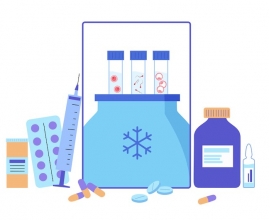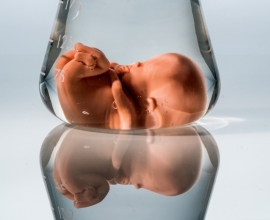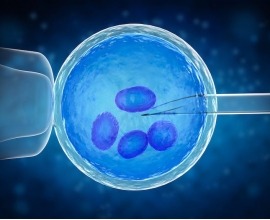Why are more women donating eggs than ever before?
Assisted reproduction has been around for some time – the first IVF baby was born in 1978, and since then millions more have followed. It is also not uncommon to see news of celebrities who undergo IVF treatment and other assisted reproduction procedures in the news. It seems that the topic is open for discussion and widely accepted, and the fact that more women than ever are donating eggs seems to reflect this. So what was the barrier in the first place? And what has changed to make assisted reproduction more generally accepted? In this article we take a look at some stories that reflect an open-minded attitude that allows families to begin even in the face of adversity.

First of all, it is worth noting that IVF, egg donation and social freezing are all popular procedures that are now available worldwide. Medical tourism has opened up cities like Prague, Czech Republic, to whole new audiences seeking high quality, cheap treatment, and further away Mexico and Turkey are also benefitting. However, these are just institutional facts – ultimately there are people behind every story, so who are they and why are they getting involved? All conceptions need eggs, and they are coming from women who are more open than ever about why they donate.
Stories in major outlets such as ABC and Vogue shed some light on the issue. First of all, these women were willing to speak to massive media organisations about their story, which already says a lot. A common theme is the need to help others – women who are not ready to have families of their own may still want to experience birth by becoming surrogate mothers. Many however choose to donate eggs that can be used by other families. It should be noted that there is financial compensation for doing this, and often it is rewarded very well; but this doesn’t mean that just anyone can do it. Genetic screening is important so that high quality eggs can be donated, ensuring a higher chance of birth success.
A charitable attitude is essential for the woman who is donating eggs, and thankfully society is opening up to their side of the story. Often they speak of helping other women who suffer hormonal conditions that prevent them from having children, or men with sperm degenerative disorders. A culture of trust and openness is key here, as safety must be felt between the family and the donor. Perhaps this is the hidden intimacy behind a superficially clinical procedure?

On the other hand, many women are now freezing eggs as an alternative. This is often chosen by women who do not know when they will have a partner to help them give birth, but know they want to do it. Freezing allows them to save the eggs for later – however this is still researching being done into how effective this is, and technology is working hard to improve conditions every day.
On the whole we can safely say that, no matter the state of technology or number of donors, trust has to be behind every procedure, just as much as high medical standards that are now becoming the norm worldwide.
Sources:
https://parentology.com/why-women-are-freezing-their-eggs/
https://www.abc.net.au/news/2019-05-11/surrogacy-and-egg-donation-a-mothers-story/10846504
https://www.vogue.co.uk/article/getting-pregnant-via-donor-egg
https://spacecoastdaily.com/2019/05/why-young-women-are-donating-their-eggs-more-than-ever-before/














